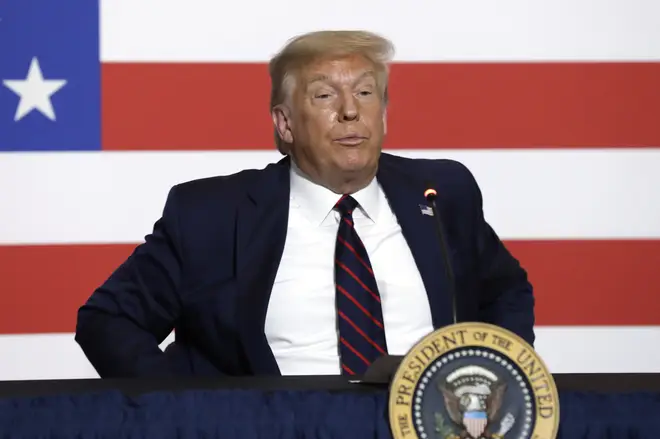
Clive Bull 1am - 4am
31 July 2020, 06:38

Donald Trump has walked back his idea to "delay" November's presidential election just hours after he suggested it.
The President faced criticism from both sides of the US political spectrum when he floated the possibility of a delay until people could "properly, securely and safely" vote.
Republicans and the Democrats hit out after Mr Trump's unsubstantiated allegations that increased postal voting will result in fraud.
Senate Majority Leader Mitch McConnell and House Minority Leader Kevin McCarthy both dismissed the idea.
The President told reporters: "Do I want to see a date change? No. But I don't want to see a crooked election."
It marked a shift in the language of a president lagging in the polls and grappling with deepening economic and public health crises.
His earlier suggestion of the delay drew immediate pushback from Democrats and Republicans alike in a nation that has held itself up as a beacon to the world for its history of peaceful transfer of power.
Read more: Donald Trump complains 'nobody likes me' amid fresh polling data

Donald Trump complains nobody likes him
Shifting Election Day is virtually impossible and the very idea represented another bracing attempt by Mr Trump to undermine confidence in the American political system.
Mr Trump does not have the authority to postpone the election, as any delay would have to be approved by Congress.
He wrote on Twitter: "With Universal Mail-In Voting (not Absentee Voting, which is good), 2020 will be the most INACCURATE & FRAUDULENT Election in history.
"It will be a great embarrassment to the USA. Delay the Election until people can properly, securely and safely vote???"
Even in states with all-mail votes, there is no evidence that postal voting will result in widespread voter fraud.
Republican politicians gave Mr Trump's idea short shrift.
"We should not delay the election," Republican Senator Ted Cruz told reporters.
"I think delaying the election probably wouldn't be a good idea," Senate Judiciary Committee Chairman Lindsey Graham said.